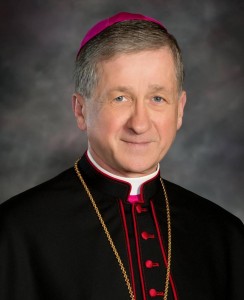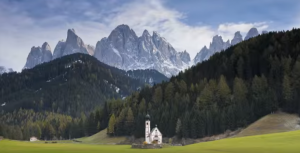 Pope Francis today released his long-awaited encyclical, Laudato Si’: On Care for Our Common Home. The nearly 180-page document offers a frank look at what the pope perceives to be man’s lack of care for creation, and calls for an “integral ecology” to remedy the current condition of the Earth, which he likens to “an immense pile of filth.” (21)
Pope Francis today released his long-awaited encyclical, Laudato Si’: On Care for Our Common Home. The nearly 180-page document offers a frank look at what the pope perceives to be man’s lack of care for creation, and calls for an “integral ecology” to remedy the current condition of the Earth, which he likens to “an immense pile of filth.” (21)
(Note: Numbers in parentheses refer to the corresponding paragraph in Laudato Si’.)
The papal letter – whose title is literally translated as “Be praised,” or better, “Praise be to you” – is divided into six chapters, and takes a look at the current state of the planet from a semi-scientific perspective that also reflects a spiritual viewpoint.
The central purpose of Laudato Si’, however, can be summarized in a single question posed more than halfway through the document: “What kind of world do we want to leave to those who come after us, to children who are now growing up?” (160)
The pope lays out problems currently plaguing the environment, such as pollution, climate change, access to drinkable water, loss of plant and animal species, and a decline in the quality of human life. He acknowledges that society has responded to the problems, but calls the solutions “weak,” since “a complacency and a cheerful recklessness” (59) seem to prevail.
Pope Francis looks to the Bible to show a Judeo-Christian link to the environment, noting that “… human life is grounded in three fundamental and closely intertwined relationships: with God, with our neighbor and with the earth itself. According to the Bible, these three vital relationships have been broken, both outwardly and within us. This rupture is sin.” (66)
He applauds the use of technology to improve living conditions but notes this can sometimes develop into a technocratic domination that gives “those with the knowledge, and especially the economic resources to use them, an impressive dominance over the whole of humanity and the entire world.” (104) This also leads to a “use and throw away” logic that treats people and nature as objects to be dispensed with when they have no further use.
However, Pope Francis proposes an integral ecology “which respects our unique place as human beings in this world and our relationship to our surroundings.” (139) He calls for a commitment to the common good and choices made based on “a preferential option for the poorest of our brothers and sisters.” (158)
The pope calls for an international commitment to the environment and an honest and transparent global governance that “cannot be assured solely on the basis of financial calculation of costs and benefits. The environment is one of those goods that cannot be adequately safeguarded or promoted by market forces.” (190)
Pope Francis invites all to an “ecological conversion” that reshapes daily life through “simple daily gestures which break with the logic of violence, exploitation and selfishness.” (230) He urges a regular examination of conscience and remains hopeful on humankind’s ability to make needed changes to save the environment: “All is not lost. Human beings, while capable of the worst, are also capable of rising above themselves, choosing again what is good, and making a new start.” (205)
Reaction to Laudato Si’ was positive, as Archbishop Kurtz of Louisville, president of the U.S. Conference of Catholic Bishops, issued a statement applauding the document.
“Drawing extensively from the teaching of his predecessors, the Pope teaches that care for the things of the earth is necessarily bound together with our care of one another, especially the poor,” Kurtz wrote. “This interdependency extends from the deep respect due every human person to all living beings and to the earth where we make our home.”
 Closer to home, Archbishop Cupich of Chicago called the encyclical “a watershed moment for the Church, for humanity and for the planet which Pope Francis calls our common home” during a press conference.
Closer to home, Archbishop Cupich of Chicago called the encyclical “a watershed moment for the Church, for humanity and for the planet which Pope Francis calls our common home” during a press conference.
 Other bishops from Illinois joined in with their own statements, as Bishop Conlon of Joliet wrote, “The encyclical invites us to begin with an openness of spirit that enables us to examine fully our individual, social, financial and political actions and arrangements, as well as any needed changes."
Other bishops from Illinois joined in with their own statements, as Bishop Conlon of Joliet wrote, “The encyclical invites us to begin with an openness of spirit that enables us to examine fully our individual, social, financial and political actions and arrangements, as well as any needed changes."
 Bishop Paprocki of Springfield also released a statement on the papal document, saying, “The Church is being guided by Pope Francis to watchfulness for an urgent ‘sign of the times,’ a new awareness that the human family is being called to a deeper solidarity on behalf of the environment. In doing so, he also reminds us of the beauty of Creation and our own dignity as its stewards.”
Bishop Paprocki of Springfield also released a statement on the papal document, saying, “The Church is being guided by Pope Francis to watchfulness for an urgent ‘sign of the times,’ a new awareness that the human family is being called to a deeper solidarity on behalf of the environment. In doing so, he also reminds us of the beauty of Creation and our own dignity as its stewards.”
Read Laudato Si’ here online or here in a downloadable PDF form.
 The Vatican has also produced this beautiful video reflecting the core concepts of the encyclical.
The Vatican has also produced this beautiful video reflecting the core concepts of the encyclical.
